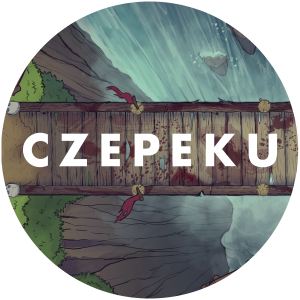Tom King

Introduction
I’m a lifelong tabletop gamer who started with the D&D Red Box in the early ’80s. Since then, I’ve played and run dozens of systems—fantasy, superheroes, supernatural horror, and more. While I have my favorites, I approach every game with curiosity and respect, even in genres that aren’t usually my go-to.
Professionally, I’ve worked in IT since 1999 and currently serve as a Project Manager for a global tech company. That’s given me strong organizational, communication, and time management skills—tools that served me well as an ENNIES judge in 2024.
Judging in 2024 was incredibly rewarding. It pushed me to read broadly, discover fantastic games I might not have picked up otherwise, and see firsthand how much impact the awards have on both big and small creators.
I’m applying again because I believe in the role and know I can do it even better. If elected, I’ll continue to bring professionalism, enthusiasm, and a deep love of this hobby to the 2026 panel.
Why do you play/run RPGs?
I play and run RPGs because there’s nothing else like them. One week you’re crawling through a cursed tomb, the next you’re pulling a job on a space station full of psychic smugglers. That constant variety keeps things exciting.
But really, it’s the people. Sitting around a table (or screen) with friends—laughing, scheming, panicking—is the core of why I keep coming back. I’ve seen full-blown celebrations over a clutch nat 20, and quiet moments when a character’s sacrifice hit everyone at once. It’s shared storytelling with real emotional weight.
I enjoy all kinds of games. Sometimes I just want monsters and mayhem. Other times I want heavy politics, weird mysteries, or messy character drama. As long as the game knows what it’s about and gives the players space to explore it, I’m in.
At the end of the day, RPGs let us connect, create, and play together in ways that nothing else does. That’s why I keep rolling.
The ENNIES requires a major commitment of time and energy. What resources do you have that will help you discharge these responsibilities? Will your gaming group or other individuals be assisting you? Does your family support you?
Judging last year gave me a clear view of just how much time, energy, and focus this role demands. It’s a big commitment—but one I took seriously and one I’m proud to take on again. Before applying, I talked it through with my family and friends. They know what to expect and are fully behind me.
This time around, I’ve built even better systems for reading, note-taking, and staying on schedule. I’ve already set aside space in the house for physical materials, and I’ve blocked off time each week to keep everything on track without burning out.
My gaming group understands when a session needs to take a backseat to judging work, and my wife has been a huge support—offering a listening ear while I work through opinions or bounce ideas around. Nobody’s reading entries for me, but having a support system makes a real difference.
I learned how to pace myself, how to stay focused under pressure, and how to keep the process fair and thoughtful all the way through. I’m better prepared and more energized than ever to take this on again.
Judging requires a great deal of critical thinking skills, communication with other judges, deadline management, organization, and storage space for the product received. What interests, experience, and skills do you bring that will make you a more effective judge?
I bring over 20 years of experience in IT and Project Management—fields where critical thinking, time management, and working with a variety of personalities are part of the job. I’m used to juggling deadlines, organizing complex workloads, and collaborating with people who see things differently. That maps perfectly to the ENNIES judging process.
Judging in 2024 gave me a solid understanding of the workload and expectations. This year, I’ve refined my systems for tracking submissions, taking notes, and organizing both digital and physical entries. My family is on board too—we’ve already set aside space and time to make the process smoother.
On top of that, I’ve been gaming since the early ’80s and have played and run everything from old-school dungeon crawls to narrative-driven indie experiments. I don’t expect every game to be “for me,” but I do make the effort to engage with each one honestly and fairly. That curiosity and flexibility, combined with my professional structure and experience, make me a reliable and well-rounded judge.
What styles and genres of RPGs do you enjoy most? Are there any styles or genres that you do not enjoy? Which games best exemplify what you like? Do you consider yourself a fan of a particular system, publisher, or genre?
I tend to enjoy low to mid magic fantasy—settings that feel grounded but still leave room for mystery and wonder. I also love the strange and unexpected: science-fantasy, Dying Earth-style weirdness, and supers games all hit the right notes for me. I used to be a bit burned out on modern horror, but I’ve warmed back up to it, especially when it leans into mood and tension over gore.
Some standout games for me lately include Gods of the Forbidden North, which delivers a rich, open world with deep lore and strong design. I’ve also loved Iron Kingdoms for its fusion of magic and tech, and Mutants & Masterminds (3e) remains my go-to for superhero games. I still have a soft spot for the old Firefly RPG, too.
I wouldn’t say I’m loyal to one system or publisher. Honestly, I’ve been most excited by what indie creators are doing—experimenting with style, tone, and mechanics in ways that feel fresh and bold. Big publishers have their strengths, but it’s often indie games that surprise me most and stick with me longest.
List (up to 5) games you’ve played in the last 2 years. What drew you to playing them? Which did you like best and why?
Old School Essentials – A favorite in my circle for short campaigns and one-shots. It hits that sweet spot of old-school challenge with modern clarity. I love the simplicity and sense of danger. It’s probably my favorite of the bunch.
Fallout (2d20) – I’ve always loved the Fallout universe, and the 2d20 system does a great job blending gritty survival with that campy retro-future tone. I’ve both played and run it, and it always delivers something memorable.
Dragonbane – This one was a surprise hit for me. It’s fast, fun, and walks a great line between narrative flexibility and mechanical bite. It’s easy to pick up and full of personality.
Dungeons & Dragons (5e) – I’ve played quite a bit of 5e lately, mostly in Forgotten Realms. It draws in such a wide mix of players, and I’ve really enjoyed the variety of experiences that brings to the table.
Each of these games brought something different—whether it was nostalgia, new ideas, or strong group energy—and I appreciate all of them for what they do well.
Have you been a game master in the past 2 years? If yes, what games have you run? What made you decide to run those games?
Yes, I’ve GMed a lot over the past two years. One of my favorites was Iron Kingdoms (5E)—I love the steampunk-fantasy mix, with magic-meets-machines, faction tension, ancient secrets, and of course… Warjacks. It’s a great setting for tough choices and big action.
I also ran a homebrew 5E campaign for nearly two years. The players were shipwrecked on a mysterious island, uncovering remnants of lost cultures while getting caught in a fallen celestial’s plan to kill a god. It started off Lost-inspired and grew into something bigger. I chose 5E for accessibility—it was familiar for new players, though I’d probably pick a different system if I ran it again.
Fallout (2d20) has been another favorite to run. It nails that balance between gritty survival, tactical tension, and the series’ signature retro-futuristic parody.
Lastly, I’ve run Mutants & Masterminds (3E), both in its default setting and a homebrew where players were superpowered monster hunters—kind of Monster of the Week meets X-Men. I’ve loved superhero stories since I was a kid, and M&M lets me bring that energy to the table.
Summarize the criteria you would use to determine if a game deserves to be nominated for Best Game.
For a game to be nominated for Best Game, it needs to be cohesive—rules, setting, voice, and internal consistency all matter. I want to see a game that knows what it’s trying to do and delivers on that promise clearly and confidently.
Rules are big for me. Whether it’s narrative-light or tactically deep, the mechanics should support the intended tone and be clear, consistent, and playable. A great system pulls players in and gives them something meaningful to do.
The setting and writing voice also matter. A strong world—whether vast or tightly focused—should feel alive and worth exploring. The writing should be clear, engaging, and reflect the game’s identity.
Art is the lowest on my list. Great visuals help, but a game can shine on writing, structure, and creativity alone. Flashy production doesn’t replace good design.
Last year, judging was tough—there were so many strong contenders doing very different things well. In the end, the best games were the ones that felt complete, playable, and left me itching to bring them to the table.
How will you judge supplements or adventures for game systems whose core rules you are unfamiliar with or you believe are badly designed?
It’s not uncommon to come across supplements tied to systems I’m unfamiliar with—or ones I don’t personally love. When that happens, I focus on how well the product stands on its own. Does it communicate clearly? Is it internally consistent? Does it offer something useful and engaging for players and GMs?
I’m not expecting a supplement to re-teach the core rules, but I shouldn’t have to flip through a base rulebook every few lines just to keep up. At the same time, I don’t want pages of fluff with no substance. The best supplements strike a balance—clear, organized, and built for play.
If it’s rules-focused, I want those mechanics to be easy to parse and understand. If it’s an adventure or setting, I’m looking for strong voice, structure, and something that sticks with me. I’m not judging whether I like the base system—I’m judging how well the product does what it sets out to do.
Even if I’d never run the core game, I can absolutely recognize good writing, smart design, and creativity. That’s the lens I use—and it keeps things fair across the board.
How would you like to see the ENNIEs change? What should remain inviolate?
One of the biggest challenges I faced in 2024 was the tight turnaround between the submission deadline and the judge panel selections. Those last few weeks were intense, and it was tough to give everything the attention it deserved. I’m glad the timeline has been adjusted this year—it’s a smart change that should help judges stay thorough without burning out.
Looking ahead, I’d love to see a little more transparency around the judging process—not to change how things work, but to help the community better understand the effort and care that goes into the decisions. There’s a lot of thoughtful discussion behind the scenes, and sharing just a bit of that could go a long way toward building trust and interest.
What shouldn’t change is the diversity of voices on the panel. The ENNIES are at their best when they represent a wide range of tastes, styles, and experiences. This hobby is too broad and creative for any one perspective to define it. That variety is the heart of what makes these awards matter.





